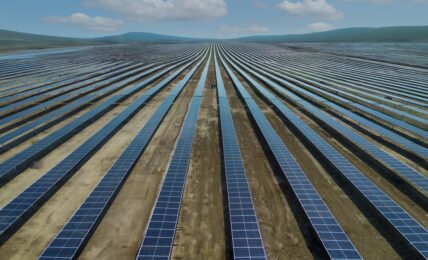Property and casualty insurance company Chubb unveiled new climate-focused underwriting criteria for oil and gas extraction projects, including making insurance coverage contingent on client adoption of evidence-based plans to reduce methane emissions.
Reducing methane emissions has taken center stage in the fight to address climate change in recent years. Methane, emitted from activity such as agriculture, fossil fuel production and transport, coal mining and landfills, is an extremely potent greenhouse gas, with as much as 80x the warming power of CO2. Given its much shorter lifetime in the atmosphere, however (10-12 years, vs 50-100 years for CO2), near-term reductions in methane emissions can have a meaningful climate impact over the next few years.
Under the new standards, Chubb said that it will continue to provide insurance coverage for clients that implement evidence-based plans to manage methane emissions, including at minimum having in place programs for leak detection and repair and the elimination of non-emergency venting. Additionally, clients will be required to adopt measures demonstrated to reduce emissions from flaring.
The company also introduced new standards for protected conservation areas, committing to not insurance coverage for oil and gas projects in government-protected areas.
While Chubb announced in 2021 that it would formally support a global transition to a net zero economy by 2050, and has set a goal to achieve carbon neutrality in its own global operations, the company’s Climate Change Policy states that the company “cannot agree to a categorical exclusion of all fossil–fuel related underwriting activity, or a blanket prohibition on supporting new fossil fuel supplies,” preferring instead to work with clients through the energy transition. The company has, however, implemented restrictions for underwriting some of the most carbon-intensive fossil fuel activities, including no longer underwriting risks for the construction and operation of new coal–fired electric generating plants, or for oil sands projects.
Earlier this year the company also launched Chubb Climate+, a new global climate business unit, focused on providing insurance products and services to businesses engaged in developing or employing new technologies and processes that help reduce the dependence on carbon.
Evan G. Greenberg, Chairman and CEO of Chubb, said:
“As a company, we are accelerating and expanding our climate-related initiatives without committing to sweeping net-zero pledges for which, in our judgment, there is not a viable path to achieve. We will continue to pursue in earnest a responsible, realistic and science-based approach.”
The post Chubb to Require Methane Emissions Reduction Plans from Oil & Gas Clients appeared first on ESG Today.



